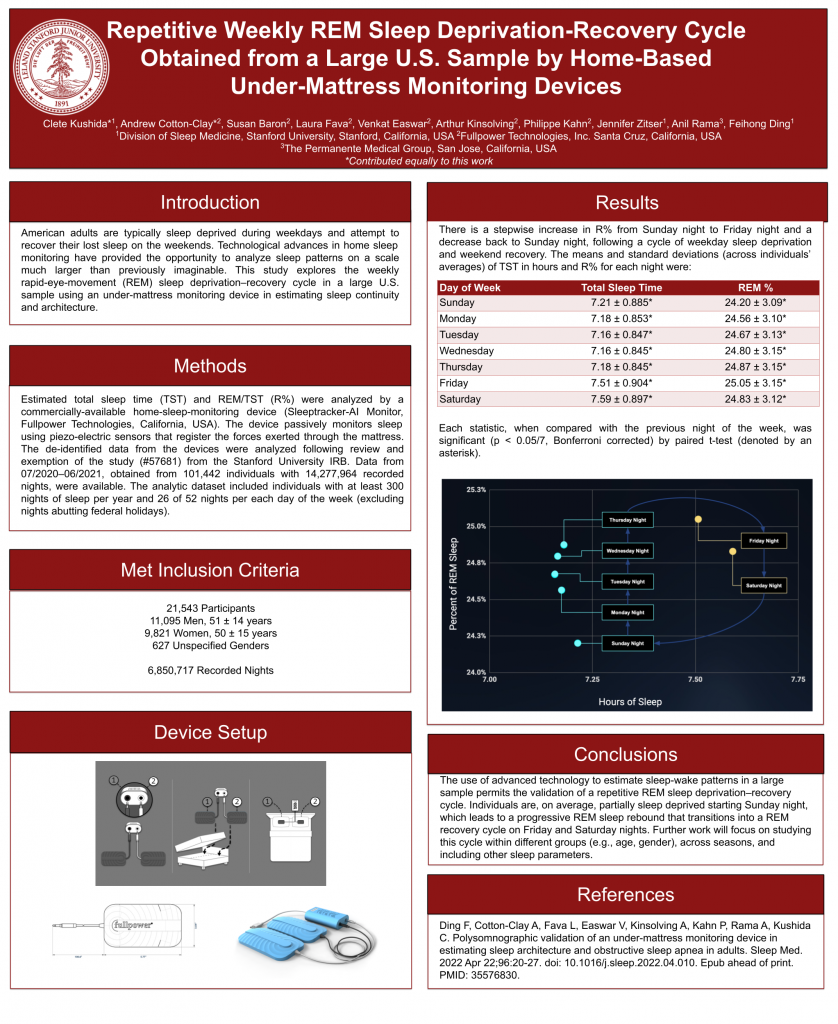REM sleep is an essential component of sleep. “REM-rebound” is an evolutionary mechanism to help us get some of that precious REM-sleep back.
Most of us are typically sleep-deprived during weekdays and attempt to recover our lost sleep on the weekends. This first-of-a-kind, extensive study of more than 6.8 million nights of sleep as per Sleeptracker-AI explores the weekly rapid-eye-movement (REM) sleep deprivation–recovery cycle. This study validates the repetitive REM sleep deprivation–recovery cycle. Individuals are, on average, partially sleep-deprived starting Sunday night, which leads to a progressive REM sleep rebound that transitions into a REM recovery cycle on Friday and Saturday nights.
Background: After early research connected rapid eye movement with dreaming and established that it made up about 20% of normal human sleep, experimenters started depriving test subjects of only REM sleep to test its unique importance. Whenever a subject’s electroencephalogram and eye movements indicated the beginning of REM sleep, the experimenter would thoroughly wake them for several minutes. As this “dream deprivation” continued, the tendency to initiate REM increased and the subjects were woken up more and more times each night. As a result, the subjects became irritable, anxious, and hungry, and several left the study early. Finally, after five nights, the remaining issues were allowed to sleep undisturbed and showed a significant increase in the percentage of sleep devoted to REM: from an average of 19.4% to an average of 26.6%. These effects were significant in comparison with a control group woken up on an equal number of occasions each night, at random times.

Further reading:
What is REM sleep?
https://www.sleepassociation.org/about-sleep/stages-of-sleep/rem-sleep/
The importance of REM rebound and CPAP compliance
https://www.sciencedirect.com/science/article/abs/pii/S1389945712001864
Polysomnography sleep studies
https://sleeptracker-ai.com